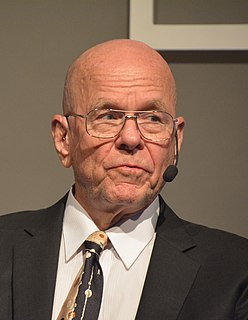A Quote by Aaron Belz
I gravitate toward the larger worldview questions such as, Why are we here? What are we supposed to be doing? What does it mean to know another person? To love someone? Of course, those questions are sort of in the background as I'm playing with language in the foreground, but those are the informing questions.
Related Quotes
The cool thing about Watchmen is it has this really complicated question that it asks, which is: who polices the police or who governs the government? Who does God pray to? Those are pretty deep questions but also pretty fun questions. Kind of exciting. It tries to subvert the superhero genre by giving you these big questions, moral questions. Why do you think you're on a fun ride? Suddenly you're like how am I supposed to feel about that?
I guess I was just always one of those guys who asked those fundamental questions: 'Who am I? What's this for? Why? What does this mean? Is this real?' All these pretty basic questions. I like making movies about people who are self-conscious in that way, and are trying to feel their way through the world.
Modern acting is method acting, most of it. And there are sort of different schools, so I guess I'm not really from one school or another. I had a number of different teachers but they were all kind of drawing from the same pool, which is - What do you want? What are you doing to get what you want? And, what is in the way? These are basic acting questions. Knowing the answers to those questions. So you're talking about objectives and actions and obstacles. That's a sort of shorthand that gives you a language.
'12 Years A Slave' is a film that is beautifully shot, wonderfully acted, and told in a compelling manner. However, there are some questions, in my opinion, as to its importance. Paramount among those questions is, What does this scenario illustrate that we didn't know or haven't seen before? And why does such a film garner such popularity?
If you don't put the spiritual and religious dimension into our political conversation, you won't be asking the really big and important question. If you don't bring in values and religion, you'll be asking superficial questions. What is life all about? What is our relationship to God? These are the important questions. What is our obligation to one another and community? If we don't ask those questions, the residual questions that we're asking aren't as interesting.
In general, questions are fine; you can always seize upon the parts of them that interest you and concentrate on answering those. And one has to remember when answering questions that asking questions isn't easy either, and for someone who's quite shy to stand up in an audience to speak takes some courage.
We have a word game in English called "Twenty questions." To play Twenty Questions, one player imagines some object, and the other players must guess what it is by asking questions that can be answered with a "yes" or a "no." I imagine every language has a similar game, and, for those of us who speak the language of science, the game is called The Scientific Method.
Curiosity is a key building block. The more curious you are, the more creativity you will unleash. A great way to do that is to ask the three "magic questions" again and again... those questions are simply, "Why", "What if?", and "Why not?". Asking these questions constantly focused you on the possibilities and away from how things are at the moment.
The great philosophers of the 17th and 18th centuries did not think that epistemological questions floated free of questions about how the mind works. Those philosophers took a stand on all sorts of questions which nowadays we would classify as questions of psychology, and their views about psychological questions shaped their views about epistemology, as well they should have.

































